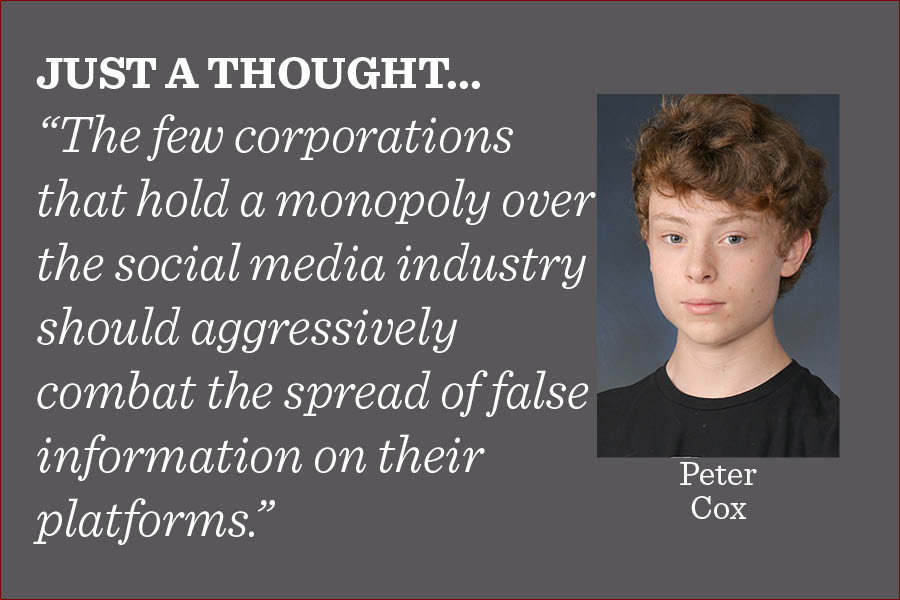Corporations should work to combat the spread of false information on their platforms
Midway staff
The serious issue of misinformation on social media is only getting worse as time goes on, so action must be taken to stop the continuing spread across every facet of the internet, writes reporter Peter Cox.
April 8, 2021
According to the German Marshall Fund Digital New Deal think tank, interactions with posts containing misinformation on Facebook alone n have tripled since 2016. Additionally, an investigation done by the Associated Press tracking the social media activity of state-level Republican officials showed that disinformation shared by sources within the party about the 2020 presidential election likely spurred people to invade the U.S. Capitol on Jan. 6.
While the government cannot and should not interfere with freedom of expression in any area, the few corporations that hold a monopoly over the social media industry should aggressively combat the spread of false information on their platforms.
There are two types of false information online. Disinformation, like the kind spread by Republican officials leading up to the 2020 presidential election, is false information spread with the specific intent to harm the discourse and confuse people about what is actually happening. Misinformation is, in many cases, the exact same kind of claims but not made with malicious intent, instead only published because the person publishing it believes it to be true. The enormous quantity of both misinformation and disinformation online, and their pervasiveness, is staggering. From far ranging, massively complex conspiracy theories like QAnon, to factual errors, like the lie that Breonna Taylor was killed in her bed, people and the news media repeat this false claim despite how easily it can be verified and refuted.
Small factual errors, like the Breonna Taylor example, could be addressed with notifications at the bottom of posts containing the lie, but the spread of QAnon claims must be halted more aggressively by removing posts and banning accounts.
Some argue that the issue is impossible to solve, since the volume of misleading posts is massive, and many of people of who make posts containing misinformation are not aware they are spreading lies and are just commenting on what they believe to be the facts, but according to the New York Times, two-thirds of these engagements stemmed from only 10 publishers. Only a small number of individuals publishing disinformation with the intent of harming the discourse can, through the power of social media lead to millions of people spreading misinformation that they believe to be true. Considering this, the best place for social media companies to start dealing with false information on their platforms would be the aggressive censorship of these select publishers.
The serious issue of misinformation on social media is only getting worse as time goes on, so action must be taken to stop the continuing spread across every facet of the internet before it seeps even further into the real world, destroying our common grounding in facts and ultimately our democracy.




























































